 I’m always soliciting topics for this Family Blog. This week, I was asked to write about things to do when your kids are home all summer. This may be the easiest one I’ve ever written. It will definitely have to be another series because there are so many options. Someone asked me once, not in a very friendly way, why I always turned everything into a teaching moment. My answer was, “Because I’m a teacher.” As parents, we should be teaching our children as much as we can. I did very poorly in school but excelled in tests and written assignments because my parents were constantly teaching me at home. I learned reading, writing, science, social studies and more. The only thing lacking in my home education was math. Because I worked as a teacher during the school year, I had summers off with my kids. I often took in other kids during summers as well. I even ran an informal summer camp at my home for a while. I realized quickly that I needed to keep all these kids engaged or they would resort to bickering or finding their own entertainment, a scary prospect. I had themes throughout the summer and took them on field trips based on those themes. We also went swimming every day, sometimes at pools, sometimes at a beach. Usually, the first theme of the summer was plants and gardening. Plants are fascinating. You can learn about their root systems by lining a clear jar with paper towel, packing some more paper towel, or anything that will hold the flat layer in place against the glass, and placing beans between the glass and the paper towel. Then fill the jar with water and wait for the beans to sprout. After studying the roots and the sprout itself, you can carefully plant it in dirt, either in a pot or directly in the ground. This can also be done inside a plastic sandwich bag. You can learn about how the plants take the water from the ground all the way up into their leaves by placing a stalk of celery in a glass of colored water. This works with carnations too, but with the celery, you can often see the colored water in the veins of the stalk as it works its way up to the leaves. A dark colored water works best. After a while, the leaves (or petals, if you use carnations) have changed color. If using a carnation, try splitting the stem and put each half in a glass with different colors. Some other fun experiments are:
* Plant a seed in a cup or a flower pot and lay it on its side. The plant will always bend its stem to grow vertically, reaching for the sun. * Plant seeds in many different pots. Put one in a sunny window, one on a shelf with indirect light and one in a cabinet or closet with little or no light. Water one moderately, overwater another and give the last one no water. Let your kids figure out what a plant needs to grow. Encourage them to be creative and come up with other ideas (water them with orange juice or milk, put one in a sealed container with no air flow, etc.) * Terrariums are fun and easy to make. This can lead to a lesson in evaporation and rainfall. In addition to science experiments, you can always go to a formal or botanical garden or an arboretum. Here are a few that are nearby: https://www.union.edu/news/stories/2015/05/jacksons-garden-a-peaceful-retreat-at-union-college.php https://www.pinehollowarboretum.org/ or if you don’t mind taking a little longer ride, https://www.berkshirebotanical.org/ The Schenectady Rose Garden in Central Park is beautiful, and you can stop off at the playground while you’re there. Collins Park is not far away, if you want to swim in the lake, and there is a playground there, too. https://schenectadyrose.org/ and https://www.iloveny.com/listing/collins-park/1713/ Other fun things include pressing flowers to turn into art projects later by gently laying them between paper towels inside a large book. Certain flowers will work better than others, so you’ll have to experiment with many varieties. The flat blossoms are good to start with. I’ve also always enjoyed going on a hike to look for edible plants. If you do this, be sure your children understand that they need to check with you before eating wild plants. Start with plants that are easily recognized. Dandelions and violets are good first choices. And, have you ever had pine needle tea or sumac lemonade? Yum! To make sumac lemonade, pick about a dozen red clusters. Then rub, crunch, and squeeze them in about a gallon of cold water for five to 10 minutes to release the flavor. Next, drape a piece of cheesecloth over a bowl, and strain the liquid. Don't be confused and use poison sumac. Use the red berry clusters from the sumac tree. There are lots of other fun ideas for projects to do with or about plants. I could spend a whole summer just on this one topic, but there are other equally fun things around that I will get to each week. Leave a comment letting me know what you tried and how it went, or other ideas you may have that you can share here.
0 Comments
I have been teacher for many more years than I would like to admit. For 12 years, I worked at The Albany Free School, one of the oldest alternative schools in the U.S. The founder, Mary Leue, taught me much about how children learn. She taught me how to instill a love of learning in them and how to get out of their way but still be available to help when asked. I learned how to make learning fun, and I learned a lot about myself, what motivates me and how I learn. The years I spent there gave me invaluable experience that has helped me, not only as a teacher, but in my life as well.
My two younger children were avid readers and learned to read early on. My youngest son, who was quite a bit younger than his siblings, was not interested in books. He loved listening to stories but didn't want to "waste his time" reading for himself. He also was exposed to more electronic devices because of his older siblings. At one point, he showed a little interest in learning to read but never really dove into it. Although, it drove me crazy, I remembered all of my training and stepped back, hoping he would finally make a break through in reading. He discovered Shakespeare in 4th grade and finally learned to read by reading Shakespeare. He even starred in a Shakespeare play put on in the school and had a role in a more public play as well. He did learn to read, but still doesn't love it the way his siblings do. My older grandson also does not love reading, These two boys are only three years apart in age, causing me to wonder if it's a generational thing or a backlash of the technology boom. Both of these boys were born during the growth of electronic gaming and computer technology. I love technology and was one of the first people to buy a personal computer when they became available to the public. I also saw to it that my young children had access to that computer and learned early primitive programming. I could see it was the wave of the future. However, I've also seen the changes it has brought about in our young people. I've seen lots of kids who are unable to entertain themselves. Even modern baby toys have all sorts of flashing lights, bells and whistles to keep them entertained. Yet, I remember when I would lay my babies down on the floor with a few simple toys or a mobile hanging above them, and they were perfectly contented to watch me busy myself around them, straightening up or cooking, whatever needed doing. I also talked or sang to them as I worked, and television was severely restricted until they were older - a constant battle with their father. Much later, my granddaughter lived with me (full-time at first, then part-time) from the time she was 1 year until she was 10. She also had no interest in reading but has now become an avid reader. Once again, I struggled with how to help her find her way into a love of books. The first thing I did was give her much less screen time than my son had. She was left to her own devices a lot. She had playdates and went outdoors. She had no electronics around her until she started school. She, like my youngest son, was a little older than usual for a beginning reader and was very precocious. With each of them, I needed to find things that would interest them. Years ago, publishers created books that were high interest and comprehension but still easy readers. It's not hard to do, just have complex story lines using simple words. Now, they can't be found. I checked with my local library, and was told that they no longer catered to these slower learners. Like me, the librarian was dismayed at this but had no helpful suggestions. I decided to transcribe their own stories for them to read back to me. When the summer reading program was happening, I went back to the librarian, explained the situation and asked if she would count these hand written stories as books they had read. She eagerly agreed. They illustrated them either with stickers or with their own drawings and brought them in to show the librarian. It was a huge success. Then, I finally found a book that my granddaughter loved, and that changed the tide. It was "Pirate Mom". I would never have guessed that would be the magic book. We went to the library every week looking through the readers, looking for the right one, and that was it. After that, she suddenly couldn't get enough to read. I think we have to work a little harder now to battle the adverse effects of technology on our children. We have to look harder for that "just right" book. We have to work very hard at limiting screen time and be willing to fight with them about it because we know it's in their best interest. And, we have to start when they are very young to instill independence and a love of learning by insisting that they have alone time and down time. I always read to my kids and read my own books around them, but in this modern age, reading doesn't seem to be enough. I had to set stronger limits and express my expectations. However, it's impossible to force children to read. It sets up a power struggle that we can't possibly win, and we don't want them to have negative feelings about reading. We want them to see the advantages and feel the joy in reading. I still love technology and recognize that our children need to be able to keep up with their peers. They need to learn all of the technological advances and be proficient in computers and telecommunication. However, do they really need to start as babies and toddlers? Do they need a toy computer or cell phone before they are even in school? I don't think so. I think they need to enjoy being children for as long as they can, playing in the dirt, running and jumping, and learning about the world around them. There will be plenty of time for them to jump into the world of technology. For now, why don't we let them enjoy being kids.
"You may not remember us... many years ago ... my son J. and I attended Music Together classes that you led in Delmar in a church on Kenwood Ave. When we attended J. was very physically active and wouldn't sit with me like the other babies/toddlers. His natural curiosity often made me nervous that I would be seen as the mom w/the wild child. I remember one day, just as we arrived, you said that you had tried to make the room safe for J. to wander. You also told me at some point that I shouldn't worry he was soaking in the music. You were right, and your flexible approach was greatly appreciated and all too rare. Just before J. turned three his behavior had changed, and he was diagnosed with autism. On the upside, his case is fairly mild (although it often doesn't feel that way). He is musically gifted, has perfect pitch, plays many instruments (he basically can decode them) knows all the ranges of each instrument in the orchestra and beyond, takes many music lessons, is in three bands, volunteers in the local philharmonic and loves going to classical music concerts and classic rock concerts too. Our home is overflowing with instruments--large ones! His 82 year-old piano teacher has said many times that J. is the best sight reader he has ever taught. J. had taught himself to play music by ear when he was about three, and I feared he would never agree to read sheet music. Thank goodness that didn't happen. So, why I am writing to you? I just wanted to let you know that we have not forgotten you. Your kind and generous treatment of J. and his mom has become even more meaningful over the years. Struggling with J.'s autism and anxiety is all too often made worse by well-meaning but inflexible adults. I spend more time than I would like to admit trying over and over again to explain J.'s quirks, how to best handle them and how to help him instead of punishing him for things he isn't fully in control of yet. (Showing them) That what is seen as being naughty behavior is actually a cry for help not punishment. ... the minor accommodations you made were a reflection of embracing his spirit rather than trying to break it. In other words, meeting him where he was." My own childhood was very unpleasant in many ways. I turned to music as a salvation, and it worked. I was gifted in music from the beginning. It made me feel alive in a way nothing else did. Unfortunately, I did not have any teachers, friends or family who met me where I was. I spent a lifetime fighting against all of the unreasonable restrictions on me. I fought to be independent and follow my heart. Music and books were the only things I loved as a child. I was not good at any sports and usually got injured trying. :-) I'm still very clumsy. I was also not good in school, hating the restrictions, slowing myself down to stay with my classmates and ending up being bored to tears and living in my daydreams. Although I was failing in school, I aced tests and got high grades on written reports and essays. I was a reader and writer, soaking up information as fast as it was handed to me. School seemed like a complete waste of time. It went way too slow for me. It was a miracle I graduated and was accepted into two music schools after high school due to my very high SAT scores and my musical talent and knowlege. I didn't stay in college though, because it felt like it was more of the same. In retrospect, my mother once commented that she wished she had known of a Performing Arts School or Alternative School for me. She was sure I would have excelled. I was also painfully shy, cringing when faced with people trying to interact and doubled over with stomach cramps if I actually had to engage. Painfully shy is not just a term - it is real. That's why I understand shy children so well and let them come around on their own terms. The more I was pushed, as a child, the more introverted I became. I didn't understand social interactions. I didn't know what was expected of me. My well-meaning mom tried pushing me. When that didn't work, she tried doing all of my talking and thinking for me. She saw my lack of social ability as a sign of stubbornness and low intelligence. Meanwhile, I was reading a few grades ahead of my classmates, was immersed in music and had little in common with others. Because my mother controlled every aspect of my life that she could, I left home knowing nothing about the real world and incapable of doing even the simplest things. Thankfully, I learned how to cope, though it took longer than I would have liked. I often refer to my music classes as an environment for organic learning. I try to make a space for every child to excel in their own way. We often don't know what our children need, and they are not always able to articulate it themselves. If we can drop our expectations and back out of the way, they will find their own way. My son recently told him that his dad was encouraging him to be a lawyer. I found that very amusing. I don't see him as a lawyer. Like me, he is shy and struggles socially. I told him that I thought it was an interesting idea considering that was what his dad wanted to be. I've often been hired to give piano lessons to children who have no interest in it. Usually I find out that it's the parent who always wanted to play the piano. If there is something you love, do it. There's never a perfect time and no time like the present. Then you can let your children find what they love and pursue that with your love and support. Some of you know that I teach Music Together® classes in Delmar, Troy and Brunswick, NY. These classes are for families with children ages birth through 4. There are also classes offered for slightly older kids and a guitar class for adults. Most of the classes are mixed-age classes with a wide range of ages in many of the classes. I love my work and can't imagine doing something else. It usually doesn't even feel like work at all. I sing and dance with families 5 days a week. What could be better than that?
Invariably, I get questioned every semester about appropriate ages for these classes. My answer is always the same. The earlier you start your child in a class, and the longer you stay with it, the more they will get out of it. A child who starts as an infant is soaking in all of the music, feeling the rhythm in their body, listening intently and staring at all of the activity around them. It may not look like they are getting much out of it because they can't participate yet, but they are getting a very rich experience. You can tell by watching their reactions to the music at home. An infant will often stop crying when the CD is played and start looking around them. They may start moving their arms or legs when the music starts. Babies start their learning experience in utero. In Music Together, I don't teach children music. Rather, I create an organic learning environment in which they can learn at their own pace and in their own way. We played rhythm sticks in class today, and I watched one little girl try to stand the sticks up on end only to have them fall over. She tried a few more times until she figured out that they wouldn't stand on their own. Because I, and her mother, stepped back from the teaching role, she was able to learn that lesson on her own. We never know what lesson will be learned which is why we don't try to teach. With babies, we may not even know what lessons they are learning. I know that children who start class as infants often talk earlier than older siblings who did not take an early class, and they are often more social. When I ask parents what they think their child is getting out of class, the parents of infants are often stumped. You can always look for recognition of songs, excitement when the music is played, increased facial expressions, cooing with the music and more. In class, I often point out the babies that cry or fuss or coo in the same key that we are singing in. They often match pitch at a very early age. So, what about older kids? Parents often start their children early and take them out when they're around 3-years old. Those kids might be more active, starting to be a little disruptive in class, or they might be engaged in other extra-curricular activities such as swim lessons or a sport. Some of them will start pre-school, making schedules more complicated. It always makes me sad to lose these older kids. Most times, they are finally feeling completely comfortable in class and at the perfect age to start participating fully. Three and four-year olds are an important part of the class. They've become the leaders. You can see all the little ones watching and following the lead of the older kids. Younger children will get more out of watching the older children than watching the adults, including their parents. It's a win-win. The older ones learn leadership skills, and the younger ones learn from them. Older children often become more physically active, wandering around more, even running. There is a "no running" rule in class that can be difficult to enforce, but it's good for them to have to follow rules, and they usually learn quickly. Although, it can be difficult for a parent to have to be chasing and stopping them frequently, I'm always available with tips to help with that dilemma. The music is good for them, so it's well worth it to hang in there. They do get through it, just like everything else. With patience, perserverance and continued participation, every child can be drawn back into an activity. I try to remind parents to keep singing no matter what. The singing itself draws them in. They respond to the sound of your voice. If you go running after them, it becomes a chase game. If you stop singing, it leaves a noticable hole. Remember, your job is to be the participant, modeling for your wayward child. If a child has been in class since they were a baby, they may be repeating a collection. This is so valuable for them. The first time around, they just soaked it in, unable to remember much of it later because the storage facility in their brain is not yet developed. By the time they are three, they have the capability to store memories and, the good news is, the new memories can attach themselves to the old ones and file them in the appropriate place. Parents are often amazed at their child's ability to remember all of the songs from a CD they listened to when they were tiny. The brain and it's functions are amazing, aren't they? In conclusion, Music Together has done extensive research, shared with all of its teachers, on child development. The mixed-age model is done purposefully because it provides the best learning environment for children. The birth through 4 age span was intentionally chosen as well. And, I've seen for myself that it really works. So, if you're in a music class with an older child, please hang in there. If you are expecting a baby or have a newborn, consider joining a class. It's one of the best gifts you can give yourself and your child. There are Music Together centers all over the world. Find one near you. Every parent knows all about these times when your child is just grouchy, and nothing seems to be able to shift it. It often happens at dinnertime. You are rushing to get the meal prepared, maybe you've been at work or have been home with your kids all day and are ready for a break, and somehow, they seem to know that this is the ideal time for a meltdown. If you're feeling a little cranky or overwhelmed, your children will also feel those feelings. I'm sorry to say that these times are often unavoidable, but if you plan ahead and know that it will happen, you can at least prepare yourself and have strategies in place to help you cope. I also found that it helped me to understand why this phenomenon happens in the first place.
In my family, I was a stay-at-home mom with my first two. When my husband came home after a long hard day, he wanted to relax. I'd been juggling kids all day and wanted some adult conversation and a break from those kids. It took a while, but we finally realized that we could both get what we wanted. When he came home, the first thing he did was say hello to everyone, then I entertained them while he decompressed. Once he had shaken off his workday, he oversaw them while I prepared dinner. It was a win-win situation ... unless one of them (usually my son) decided their dad just wasn't enough. I learned to involve the kids in the dinner making process in easy ways. They could rip up lettuce for salad or get things out of the refrigerator or cabinets for me. If they were cranking out, they lost the fun of helping. Sometimes, I just gave them water in a bowl with cups and spoons on top of a big towel and worried about the clean-up later. I realized that switching their focus was the real trick. Occasionally, I pulled out a forgotten toy that I had hidden away. I also made sure they went outside in the late afternoon and ran off some of their energy. Sometimes that backfired, making them tired and cranky, but usually it worked well, just mellowing them out. I rarely used TV time as an antidote but because of that, it was useful when everything else failed. The biggest thing I learned to do was remember that they were more important than a timely dinner. Most often, taking a few minutes to drop what I was doing and give them my undivided attention was all that was needed. Now, when I say undivided, I really mean that. It doesn't work if your mind is still on the waiting dinner. I also tried to remember that there are reasons why they pick that all-important time to feel their oats. It's getting late, their parents are busy and maybe paying attention to each other, they're hungry, and chances are, we're feeling rushed to get them fed and off to bed. Children are amazing. They pick up on those subtle vibes and always react to them. I’ve had lots of conversations with a variety of children that went something like this, “I know you don’t like me talking to ___?___ right now, but this is important to me. You are too, and I will have time for you in a minute.” Or, “I know it’s hard to share me, but I love Daddy, too and need to talk to him for a minute. Please wait.” So next time your child is cranky for apparently no reason, try to look at the situation from their perspective for a moment. It might be very revealing. Also, if it's close to meal time, give them an appetizer, something healthy and light that is enough to hold them over to dinner but not heavy enough to fill them up. The sight or smell of food may be what's setting them off because they suddenly realize they're hungry. There are lots of reasons for these cranky times. The most important thing of all is to stay focused on what you know to be true about your child and try to stay calm and loving to avoid escalation. Here's an article that may help, too. https://www.quickanddirtytips.com/parenting/behavior/how-to-handle-a-cranky-child |
Archives
April 2019
Categories |


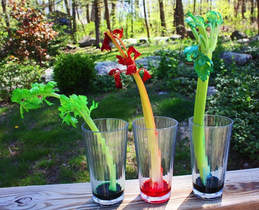
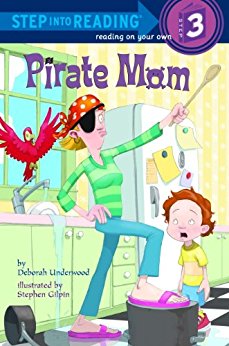
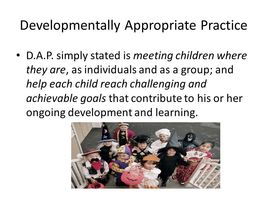
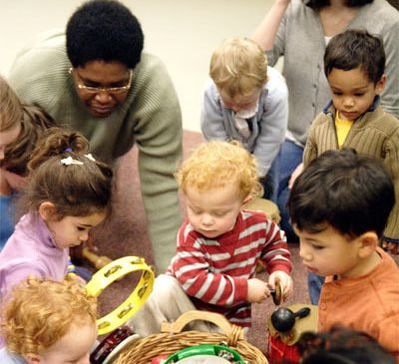
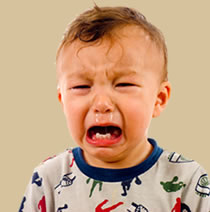
 RSS Feed
RSS Feed